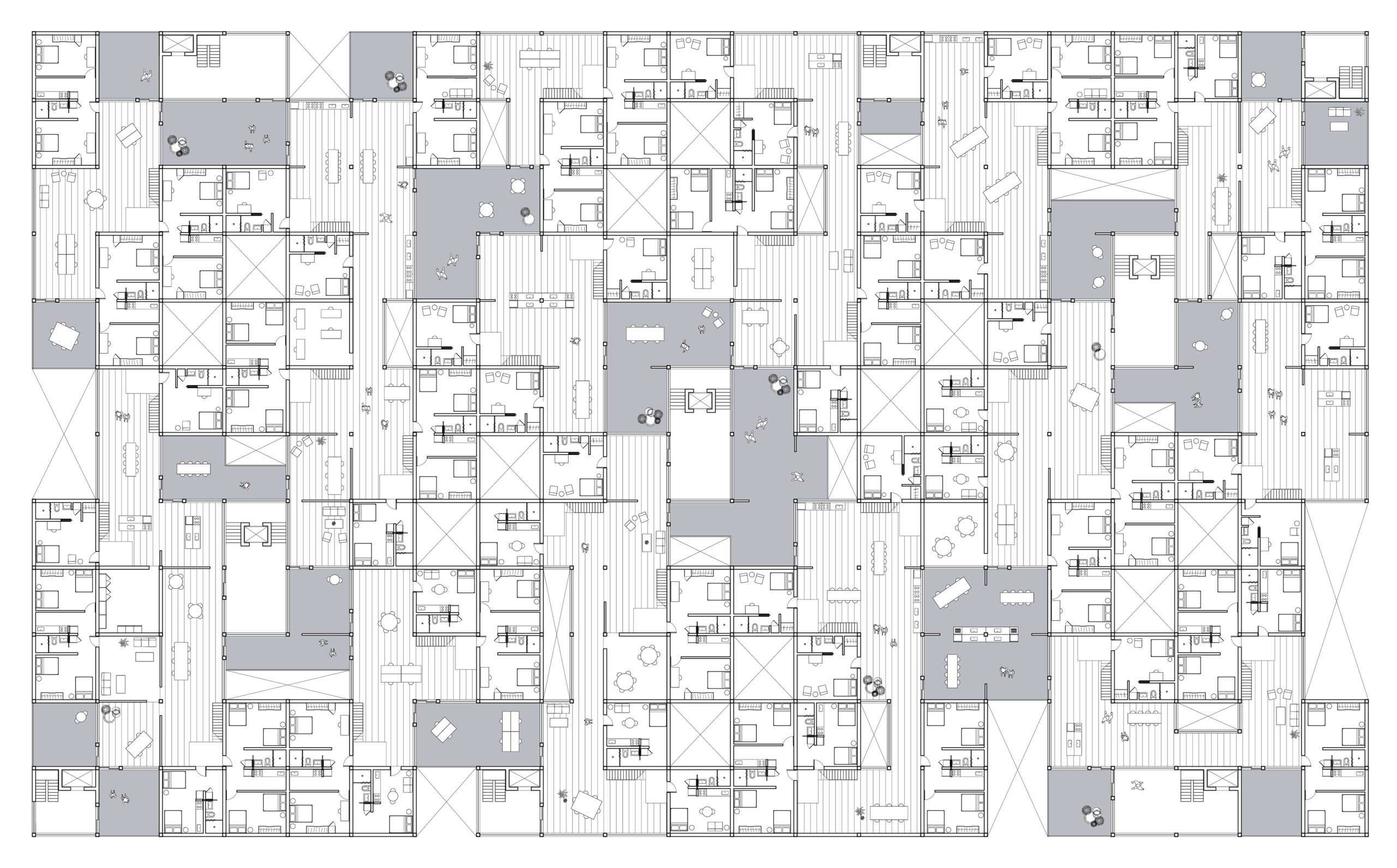
Velikov, Rule Earn 2019–2020 ACSA Honors
Kathy Velikov and Jonathan Rule have won a 2019–2020 AIA/ACSA Housing Design Education Award from the Association of Collegiate Schools of Architecture. Velikov is an associate professor at Taubman College, and Rule is an assistant professor.
The AIA/ACSA Housing Design Education Award recognizes the importance of good education in housing design to produce architects ready for practice in a wide range of areas and able to be capable leaders and contributors to their communities.
Velikov and Rule were honored for the New Domesticities New Collectivities studio, which explored the development of alternative forms of housing for emergent forms of living and working in Detroit. Historically, the arrangement and configuration of plans within the context of domestic space, most often reveals tight allotments of square footage and compartmentalization of spaces with inherent naming conventions that imply single use, inflexible scenarios of inhabitation: Living Room, Kitchen, Bedroom, etc. But, how we live, work and play is continually changing. The nuclear family, which dominated housing design of the 20th century, is disappearing. It is being replaced by diverse typologies of post-familial living arrangements. These include various forms of collectives, cohabitation, and new ways of combining dwelling and working. These urban residents require a rethinking of what housing can be and what it can do. This paradigmatic shift questions our assumptions for what constitutes a home, how the private and the shared are partitioned, and what new kinds of spatial uses are necessary. In response to these new domesticities, the studio focused on the development of alternative forms of housing for emergent forms of living and working in Detroit’s Eastern Market area.
The studio was not interested in the standard kit of parts, but instead sought to explore how these traditional spatial labels can be reframed and recombined at both the unit and building scales to develop scenarios and spatial typologies that experiment with collective forms and combinatory strategies for both domestic arrangements and their architectures. Collaboration, cooperation, and sharing were not only ideas that students tackled with their designs, but also defined how the work was undertaken in the studio, both through having students work in groups of three, and by collectively producing the overall site and massing plan for the sites.
Students in the studio whose work was recognized as part of the award are Sarah Arthur, Brian Baksa, Hannah Cane, Teruaki Hara, Karina Hernandez, Jordan Laurita, Nour Mazjoub, Eric Minton, and Samuel Scardefeld.
The Association of Collegiate Schools of Architecture (ACSA) is a nonprofit, membership association founded in 1912 to advance the quality of architectural education. ACSA, unique in its representative role for schools of architecture, provides a forum for ideas on the leading edge of architectural thought. Each year, the ACSA honors architectural educators for exemplary work in areas such as building design, community collaborations, scholarship, and service. Award winners inspire and challenge students, contribute to the profession’s knowledge base, and extend their work beyond the borders of academy into practice and the public sector.
Read a related story: Clutter, Peñarroyo Earn 2019-2020 ACSA Honors
See a complete list of ACSA award winners here.
Image credit: Hannah Cane, Jordan Laurita, and Nour Mazjoub.









